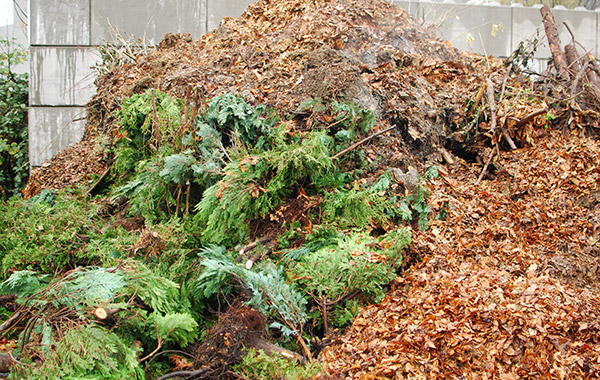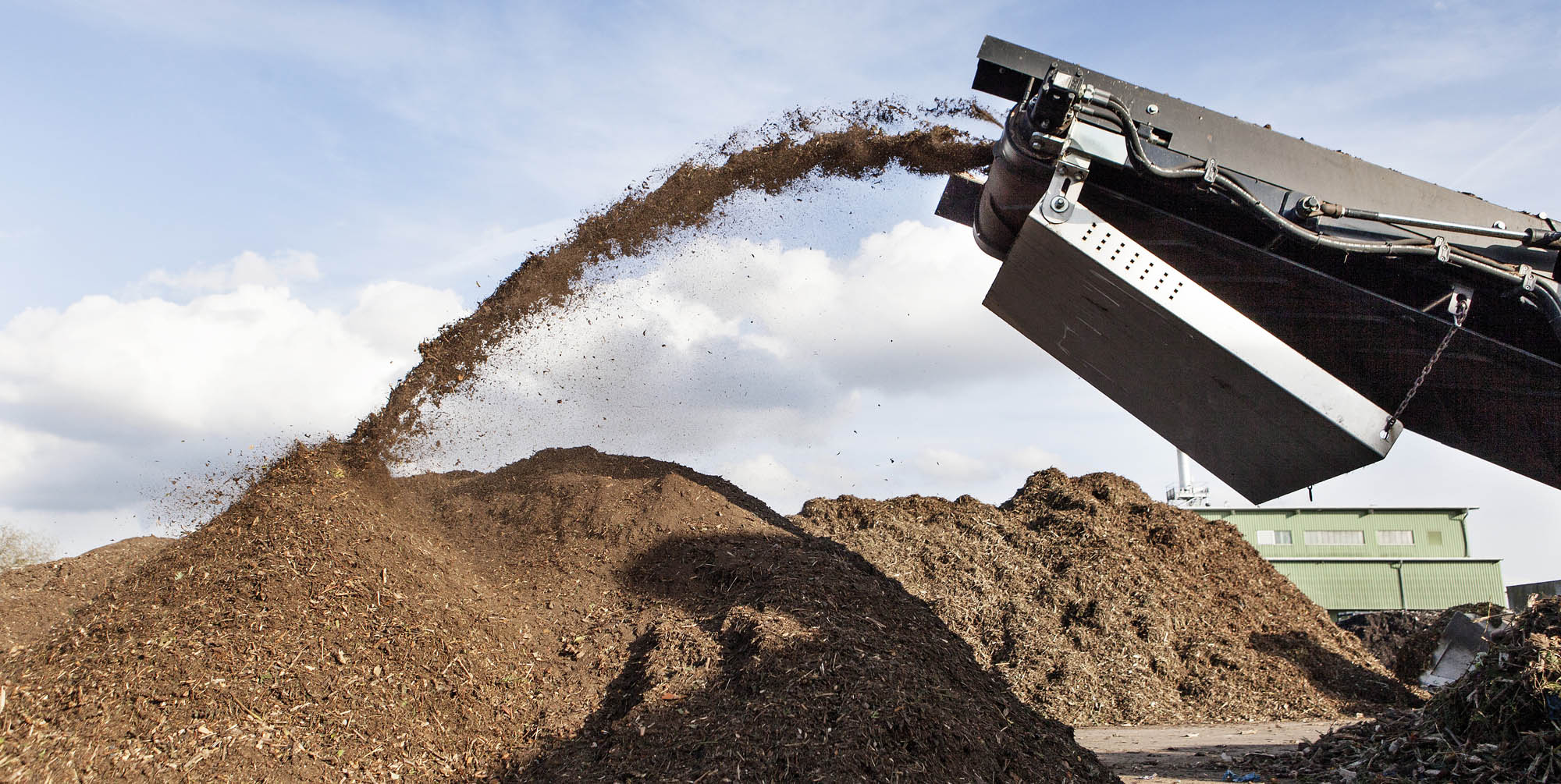From hedges to the recycling centre: green waste from gardens and parks is much more than just conventional waste. Using tried-and-trusted processes, materials experts from the ALBA Group turn branches, foliage and similar waste into precious compost for gardening and agriculture. After collection, the green waste is shredded by experts and sent to specialist sites for open-air composting. The waste is stored in heaps and the combined effects of oxygen and water result in a composting process lasting six to eight months.
Organic waste: closing the recycling loop
Making fertiliser and energy from green and biowaste
Expertise - the key to recycling biowaste
Some types of plant waste cannot be immediately sent for open-air composting. For example, ALBA uses special fermentation facilities to turn waste from biowaste wheelie bins into methane, which is used to generate electricity in combined heat and power plants. This fermentation process keeps any associated odour nuisance to a minimum and dries out the material, which can then be sent for composting and mixed with green waste to produce marketable compost.

A natural product that meets the highest quality standards
By subjecting organic material to temperature testing and sanitation, ALBA specialists prevent any germs from developing. The end result is certified compost that can be filled in sacks by the peat and soil industry and used as a valuable natural fertiliser.
As well as producing compost, we have also established a procedure for turning the shredded wood fractions from green waste into substitute fuels for power stations - an environmentally friendly replacement for coal, oil and gas.

